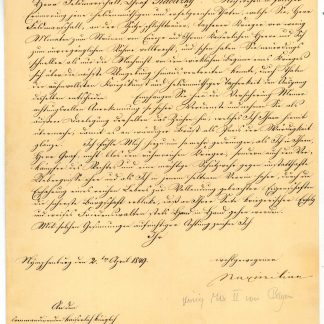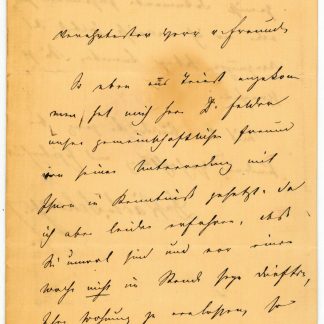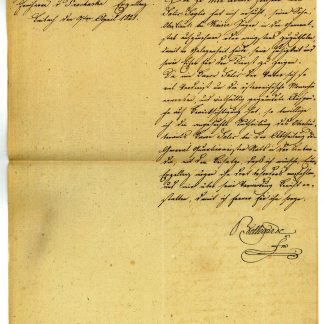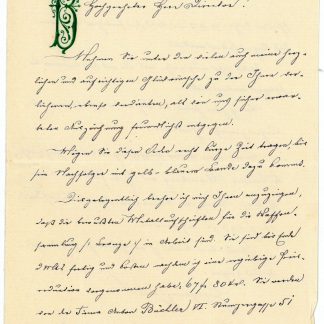Autograph letter signed.
4to. 1 p. on bifolium.
€ 180.00
To the lawyer and fellow deputy Eugène Aroux, concerning the political situation of Normandy following the death of Alexandre Dumeilet and the resignation of Bernard Cabanon, both deputies for Normandy. Teste expresses his regret at not having met Aroux in Paris when their stay had overlapped for one day, as he had learned it to late from the fellow deputy Alexandre-François Vivien. He also mentions the deputies Jean-Jacques Baude and Alexandre-Jacques-Laurent Anisson-Dupéron, a political adversary, as well as an affair in Évreux, possibly in connection with the death of Dumeilet who was from Évreux and deputy for Eure: "Notre collègue Vivien vient de m'apprendre que vous étiez à Paris le 15 : j'y étais rentré le 14 et j'ai vu, mon cher camarade, tout plein de regrets de ne pas avoir su à temps que je pouvais vous voir. Nous avons excusé Vivien, Baude et moi des deux vacances que laissent à remplir la mort et la démission de MM Dumeylet [!] et Cabanon. Est-il donc écrit que la Normandie n'a que des Anisson-Dupéron à nous offrir ? [...]".
Then deputy for Gard, Teste would hold several ministerial positions from 1834. In 1840 he was named Minister of Public Works, which he remained until 1843. For his removal from the government by François Guizot, Teste was compensated with high juridical offices and the peerage of France. In 1847 the so-called Teste-Cubières scandal erupted. The retired general and temporary Minister of War in 1839 and 1840 Amédée Despans-Cubières had bribed Jean-Baptiste Teste to get the minister's approval for the renewal of the concession for a salt mine at Gouhenans. Teste's involvement came to light during a trial in 1847 involving Despans-Cubière's associates and he was subsequently tried and convicted to three years in prison and a fine amounting to the sum of the bribe.
Somewhat dusted to the right margin. Corners bent.






